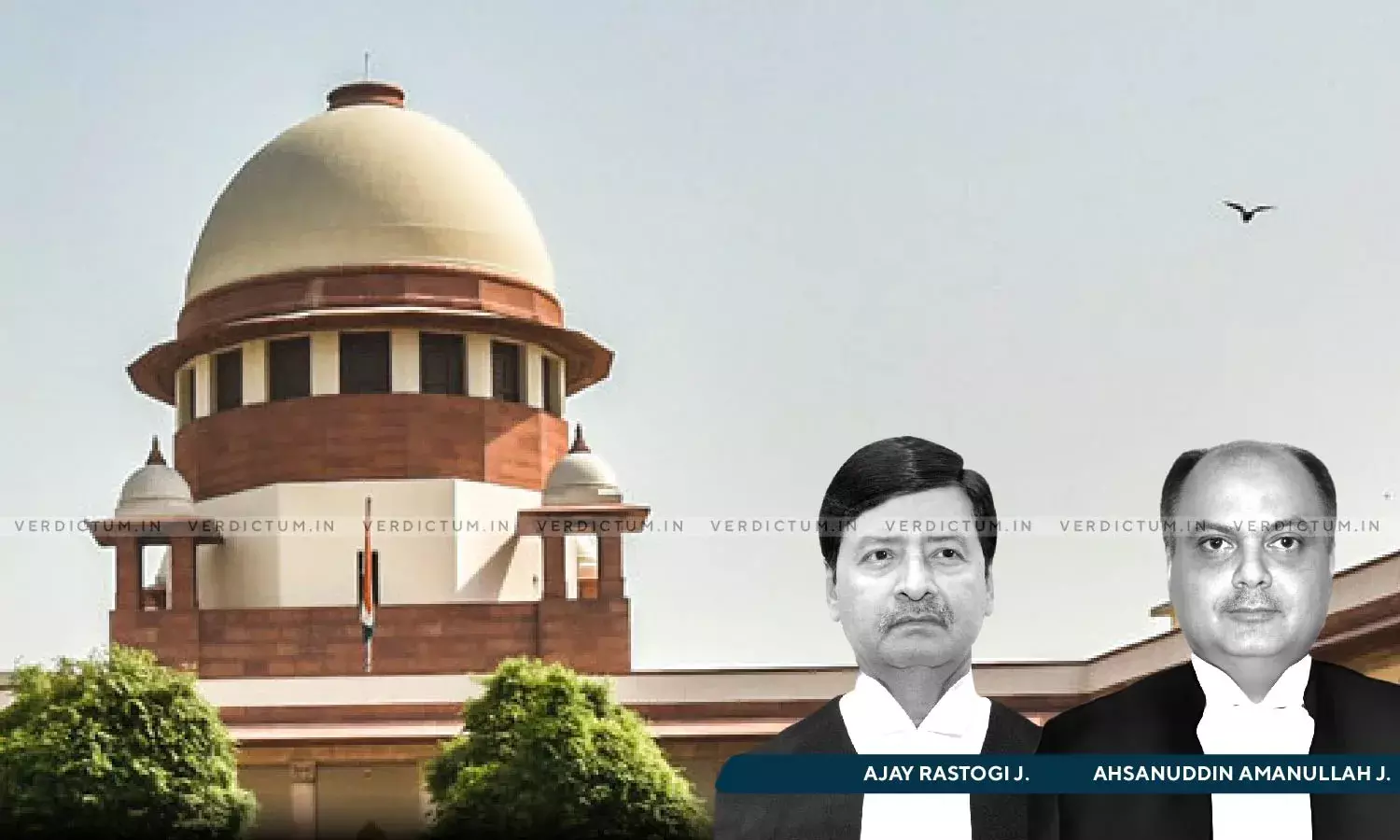Judicial Discretion Must Be Governed By Rule, Not By Humour: SC Reiterates While Considering Bail

The Supreme Court while considering two Special Leave Petitions (SLPs) where bail was sought, considered the factual matrix pertaining to each individual case. While rejecting the prayer for bail in one, the Court allowed the appeal in another. The bench, however, did not go into the legal aspect pertaining to the Gujarat Control of Terrorism and Organised Crime Act, 2015 as the appeals only dealt with a limited aspect of bail.
In the SLPs, two impugned orders of the Gujarat High Court were challenged where the Court had dismissed the prayer for the release of the Appellants.
“…4. Some jurists have regarded the term “judicial discretion” as a misnomer. Nevertheless, the vesting of discretion is the unspoken but inescapable, silent command of our judicial 10 system, and those who exercise it will remember that discretion, when applied to a Court of Justice, means sound discretion guided by law. It must be governed by rule, not by humour; it must not be arbitrary, vague and fanciful, but legal and regular. An appeal to a Judge's discretion is an appeal to his judicial conscience. The discretion must be exercised, not in opposition to, but in accordance with, established principles of law”, a bench of Justice Ajay Rastogi and Justice Ahsanuddin Amanullah said while quoting Gudikanti Narasimhulu v Public Prosecutor, (1978) 1 SCC 240.
Senior Advocate Nitya Ramakrishnan appeared for the appellants, while Additional Solicitor General of India SV Raju appeared for the State.
In the present matter, in one appeal, Atulbhai Vithalbhai Bhanderi, the appellant, was accused of the offences under Sections 3(1), 3(2), 3(3), 3(4) and 3(5) and 4 of the GCTOC Act, 2015 read with Sections 384, 385, 386, 387, 506(1), 506(2), 507, 201, 120B IPC.
While in the second appeal the appellant Mukeshbhai Vallabhbhai Abhangi was alleged of the offences punishable under Sections 3(1), 3(2), 3(3), 3(4) and 3(5) and 4 of the GCTOC Act read with Sections 386, 387, 506(1) and 506(2) of the IPC.
Both the accused were alleged to be involved in intimidating and threatening the victims in connivance with the main accused Jaysukh @ Jayesh Muljibhai Ranpara (Patel), for running an organised crime syndicate for the purpose, with the intention to extort money and in land-grabbing by threatening people.
In Bhanderi’s plea, the State of Maharashtra v Shiva alias Shivaji Ramaji Sonawane, (2015) 14 SCC 272 was relied upon, which stipulates that the offence of “organised crime” could be said to have been constituted by at least one incident of continuation apart from continuing unlawful activity evidenced by more than one chargesheets in the preceding ten years. And the case that was registered previously was before the GCTOC Act came into force in the State of Gujarat.
The Court considering the peculiar facts and circumstances in appeal observed , “Had there been no other case against the Appellant and no material, at least prima facie, to indicate his regular participation in any crime, the Court could have considered his prayer, but keeping in view his alleged role, we are not inclined to exercise discretion in his favour, for now… The fact, that out of the twelve charge-sheeted accused, six co-accused have not been granted bail, five have availed the benefit of default bail and only one is on regular bail, have also persuaded this Court not to interfere”.
However, based on the submission made by the ASG that the prayer for bail of the Appellant could be considered only after the protected witnesses are examined, the Court granted liberty to the appellant to renew his bail plea after the said period.
While on the other hand, in Abhangi’s plea the bench cited Niranjan Singh v Prabhakar Rajaram Kharote, (1980) 2 SCC 559 which puts forth,
“3… Detailed examination of the evidence and elaborate documentation of the merits should be avoided while passing orders on bail applications. No party should have the impression that his case has been prejudiced. To be satisfied about a prima facie case is needed but it is not the same as an exhaustive exploration of the merits in the order itself.”
The bench took note of the fact that there was only one case prior to the present case, that too of the year 2014, where the FIR was quashed by the High Court, even prior to the filing of the charge-sheet.
“The Appellant is in jail since October 16, 2020 viz. for over 2½ years. Admittedly, it is the first time, he is accused of such nature of crimes”, the bench noted while allowing the appeal.
The Court thus granted bail to Mukeshbhai Vallabhbhai Abhangi subject to certain restrictions, and allowed the appeal.
Cause Title: Atulbhai Vithalbhai Bhanderi v. State Of Gujarat

